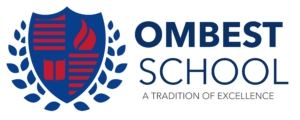Resource management is about planning, scheduling, and allocating people, money, and technology. It’s about using resources to get the best value for your organization. When done right, it means having the right resources at the right time for the right tasks.
For businesses, good resource management is key. It helps use resources well, ensuring projects are done on time and within budget. This approach boosts efficiency, cuts costs, and makes both clients and employees happier.
Key Takeaways
- Resource management is the practice of planning, scheduling, and allocating people, money, and technology to a project or program.
- Effective resource management helps optimize resource utilization, ensuring projects are delivered on time and within budget.
- Good resource management can enhance efficiency, reduce costs, and improve client and employee satisfaction.
- Resource management involves techniques such as planning, allocation, scheduling, utilization, and forecasting.
- Transparent resource management processes provide greater control over project clashes or disruptions.
Understanding Resource Management
Definition and Components
Resource management is about planning, scheduling, and allocating resources for projects or programs. Its main goal is to use resources effectively to get the best value for the organization. Simply put, it makes sure you have the right resources at the right time for the right tasks.
The main parts of resource management are:
- Resource Planning: Finding out what resources (like people, equipment, or materials) are needed for a project or task.
- Resource Scheduling: Figuring out when and how resources will be used based on project timelines and deadlines.
- Resource Allocation: Putting resources to work on specific tasks or activities in a project.
- Resource Monitoring and Optimization: Keeping an eye on how resources are being used and making changes to boost efficiency and productivity.
Good resource management means planning, scheduling, and allocating resources well. This ensures projects are done on time, within budget, and to the right quality. It helps organizations use their resources better, cut down on waste, and deliver projects more effectively.
| Key Resource Management Components | Description |
|---|---|
| Resource Planning | Identifying the resources (people, equipment, materials, etc.) needed to complete a project or task. |
| Resource Scheduling | Determining the availability and allocation of resources based on project timelines and deadlines. |
| Resource Allocation | Assigning resources to specific tasks or activities within a project. |
| Resource Monitoring and Optimization | Tracking resource utilization and making adjustments to improve efficiency and productivity. |
By managing resources well, organizations can improve their project delivery, save money, and achieve better business results.
The Importance of Resource Management

Resource management is key to successful project management and business operations. It’s about using resources like people, equipment, and money well. This ensures projects are done on time and the business makes money.
Good resource management helps businesses use their resources better and make more money. When businesses have many projects, managing resources well is very important. It helps them stay on track and use resources wisely.
Studies show that using agile and mature resource management can really help. Businesses see a 21% better chance of meeting goals and a 21% increase in staying within budget. They also see a 24% improvement in delivering projects on time and a 17% drop in “scope creep”.
Effective resource management also saves businesses a lot of money. It can save up to 28 times more than traditional methods. This is because it helps in areas like salary, professional services, and buying supplies.
Moreover, good resource management makes businesses more efficient and resilient. It helps in delivering products or services faster. It also makes sure projects are done well and on time, making everyone happy.
In short, resource management is very important. It helps businesses use their resources well, improve project success, and stay competitive. Good resource management is essential for successful project management and business success.
| Benefits of Effective Resource Management | Percentage Improvement |
|---|---|
| Meeting goals and intent | 21% |
| Completing projects within budget | 21% |
| On-time delivery | 24% |
| Reduction in “scope creep” | 17% |
| Cost savings from mature project management techniques | Up to 28 times more money |
“Successful resource management results in increased operational efficiency, improving business processes and resource allocation.”
Resource Management

Resource management is key in project and business management. It’s about planning, allocating, and using resources well. This includes people, equipment, money, and time. It helps projects succeed and goals are met. Good resource management makes businesses run better, saves money, and boosts productivity.
Resource planning is a big part of it. It’s about figuring out what resources you need for a project. Then, you plan how to get and use them. Knowing what resources you have helps managers decide who does what task.
Resource scheduling is also important. It’s about making a detailed plan for when resources are used. This considers things like task order, deadlines, and who’s available. Good scheduling avoids problems, uses resources well, and keeps projects on track.
There’s also resource leveling. It’s about adjusting who does what to even out resource use. This prevents too much or too little work, making things more efficient and saving money.
Resource management also means resource tracking and resource forecasting. Tracking is watching how resources are used during a project. Forecasting is guessing what resources you’ll need next based on past projects.
Good resource management is vital for any business. It improves project success, saves money, and keeps employees happy. Using the right methods helps companies stay ahead in their markets.
Benefits of Effective Resource Management

Effective resource management is key to successful projects and business growth. It helps use resources well, leading to better efficiency, productivity, and profits.
Improved Project Delivery
Good resource management means the right people are in the right place at the right time. This leads to smoother projects, fewer delays, and projects finished on time. Effective resource management can increase on-time project delivery rates by up to 90%.
Cost Optimization
Good resource management lets businesses plan for the future. They can decide when to hire or outsource, saving money. It also helps track work hours better, saving up to 35%.
Employee Satisfaction and Retention
Resource management helps keep workloads balanced and prevents burnout. One organization was able to reduce team stress levels by implementing effective resource management strategies. Happy employees stay longer, saving the company money and effort.
In short, good resource management boosts project success, saves money, and keeps employees happy. It’s a smart investment for any business looking to grow and stay ahead.
Also Read : What Is Sustainable Development And Why Is It Important?
Conclusion
Resource management is key for businesses of all sizes. It helps in planning, scheduling, and allocating resources. This way, companies can do better projects, save money, and keep employees happy and loyal.
Many studies have shown how important it is to manage resources well. This includes managing people, the environment, and money. Using management principles and making smart decisions is crucial in this field.
People and families also face resource challenges every day. This shows how universal resource management ideas are. As we move forward, we need to find new ways to mix resource management with other ideas to tackle big social problems.
Using advanced project management tools can help a lot. These tools help track work, estimate costs, and optimize resources. By being smart about resource management, businesses can do better projects, save money, and keep employees happy.
FAQs
Q: What is resource management and why is it important for businesses?
A: Resource management is the process of planning, allocating, and managing resources efficiently to achieve project goals. It is important for businesses because effective resource management ensures optimal resource utilization, enhances productivity, and minimizes costs, ultimately leading to better project outcomes.
Q: What are some common resource management techniques?
A: Common resource management techniques include resource leveling, resource smoothing, and critical chain project management. These methods help in balancing resource allocation with project requirements, ensuring that resources are used effectively across different project tasks.
Q: What are the benefits of resource management?
A: The benefits of resource management include improved resource efficiency, better visibility into resource availability, enhanced team collaboration, reduced project risks, and increased likelihood of project success. Effective resource management also leads to significant cost savings for businesses.
Q: How should a resource management plan be structured?
A: A resource management plan should outline the resource requirements for the project, identify types of resources needed, assign roles to team members, and establish a schedule for resource allocation. It should also include strategies for managing resource capacity and availability throughout the project lifecycle.
Q: What role does a resource manager play in project management?
A: A resource manager is responsible for overseeing the allocation and utilization of resources within a project. This includes identifying resource needs, managing resource availability, and ensuring that the right resources are assigned to the right project tasks to achieve project goals effectively.
Q: What is the resource management process in project management?
A: The resource management process involves several key steps: identifying resource requirements, planning resource allocation, acquiring resources, managing and monitoring resource usage, and reviewing resource performance. This process ensures that resources are used efficiently throughout the project.
Q: How can poor resource management impact a project?
A: Poor resource management can lead to several negative outcomes, including project delays, increased costs, resource shortages, and decreased team morale. It can also result in an inability to meet project deadlines and deliverables, ultimately affecting overall business performance.
Q: What are some best practices for effective resource management?
A: Best practices for effective resource management include maintaining a clear resource management plan, utilizing resource management software for tracking and allocation, regularly assessing resource capacity and availability, and fostering open communication among team members to address resource needs promptly.
Q: How does project portfolio management relate to resource management?
A: Project portfolio management involves overseeing multiple projects to ensure alignment with business objectives. Effective resource management is crucial in this context, as it helps allocate resources across various projects efficiently, balancing workloads and maximizing resource utilization across the portfolio.
Q: What types of resource management tools are available?
A: There are various resource management tools available, including project management software, resource scheduling tools, and capacity planning solutions. These tools assist project managers and resource managers in tracking resource availability, managing resource allocation, and forecasting resource needs for projects.


